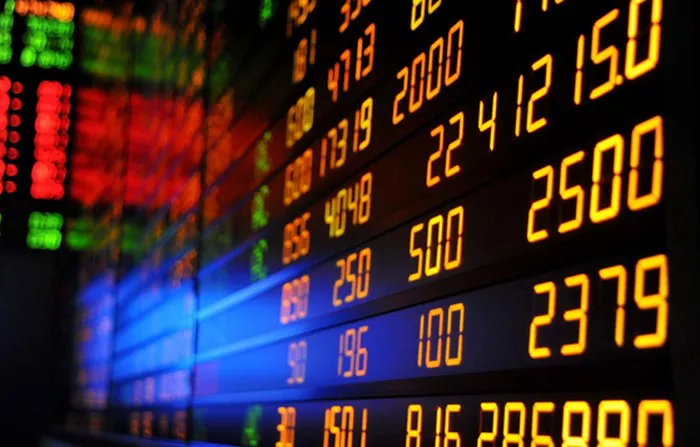In the dynamic world of financial markets, the term “futures” resonates as a powerful instrument for investors seeking exposure to commodities, currencies, and financial indices. Many individuals, driven by the desire for greater control over their investments, wonder if it’s possible to engage in futures trading without the involvement of a traditional broker. In this comprehensive article, we will delve into the intricacies of trading futures without a broker, examining the advantages, challenges, and potential alternatives.
Understanding Futures Trading
Before delving into the prospect of trading futures without a broker, it’s crucial to have a solid understanding of what futures trading entails. Futures are financial contracts that obligate the buyer to purchase, or the seller to sell, a specific asset at a predetermined future date and price. These contracts are standardized and traded on organized exchanges, facilitating price discovery and providing a transparent marketplace.
Trading Futures Without a Broker
The traditional approach to futures trading involves utilizing the services of a brokerage firm that acts as an intermediary between the trader and the exchange. However, with advancements in technology and changes in market dynamics, some traders contemplate the possibility of bypassing traditional brokers and accessing futures markets directly.
Direct Market Access (DMA)
One alternative for those interested in trading futures without a broker is Direct Market Access (DMA). DMA allows traders to connect directly to the exchange, eliminating the need for an intermediary. While this approach can provide more control and potentially lower transaction costs, it comes with its own set of challenges, including the need for sophisticated technology, reliable internet connectivity, and a thorough understanding of the trading platform.
See Also: What is the grain Futures Commission?
Challenges of Trading Futures Independently
While the idea of trading futures without a broker may seem enticing, it’s essential to acknowledge the challenges associated with such a venture. One significant hurdle is the requirement for substantial capital to meet the exchange’s margin requirements. Brokers often extend leverage to traders, allowing them to control larger positions with a smaller amount of capital. Trading without a broker means the trader must fund the entire position upfront.
Risk Management Considerations
Effective risk management is a critical aspect of successful futures trading. Without the guidance of a broker, traders must be adept at assessing and managing risk independently. This involves setting stop-loss orders, diversifying positions, and staying abreast of market developments. Novice traders may find the absence of a broker’s expertise and risk management tools challenging.
Technology and Infrastructure
Trading futures without a broker demands a robust technological infrastructure. Traders must possess a reliable computer, high-speed internet connection, and advanced trading software capable of handling real-time market data. Additionally, traders must stay vigilant about system maintenance and security to ensure uninterrupted access to the futures markets.
Regulatory Considerations
Navigating the regulatory landscape is another aspect that traders must carefully consider when contemplating trading futures without a broker. Brokers play a crucial role in ensuring compliance with regulatory requirements, including Know Your Customer (KYC) procedures and anti-money laundering (AML) regulations. Traders operating independently must take on these responsibilities themselves, ensuring they adhere to the necessary legal and regulatory standards.
Benefits of Trading Futures Independently
While the challenges are apparent, there are potential benefits for those who choose to trade futures without a broker. One of the most significant advantages is the potential for lower transaction costs. Brokers typically charge commissions and fees for their services, which can eat into traders’ profits. By eliminating the intermediary, traders may have the opportunity to reduce overall trading costs.
Moreover, trading without a broker provides a higher degree of autonomy and control over one’s investment decisions. Traders can execute trades directly, make quick decisions without broker approval, and have a more hands-on approach to managing their portfolios. This level of independence can be empowering for experienced traders who have a deep understanding of the futures markets.
Alternatives to Traditional Brokers
For those seeking an intermediate approach between fully independent trading and relying on a traditional broker, there are alternative options. Some financial institutions offer futures trading platforms with reduced fees and greater flexibility compared to traditional brokers. These platforms may provide a compromise for traders who value autonomy but still appreciate the support and resources offered by established financial institutions.
Educational Resources for Independent Traders
One of the challenges faced by traders venturing into futures trading without a broker is the lack of educational resources and support. Brokers often provide educational materials, research reports, and customer support to assist traders in making informed decisions. Independent traders must proactively seek out educational resources, participate in forums, and stay informed about market trends to bridge this knowledge gap.
Conclusion
In conclusion, while the prospect of trading futures without a broker may appeal to those seeking greater control and autonomy, it is not without its challenges. Traders must weigh the potential benefits against the significant hurdles, including the need for substantial capital, advanced technology, and a deep understanding of risk management. For those unwilling or unable to navigate these challenges independently, alternative options, such as Direct Market Access or specialized trading platforms, may offer a middle ground. Ultimately, successful futures trading without a broker requires a combination of financial acumen, technological proficiency, and a commitment to staying informed about market dynamics and regulatory requirements.


